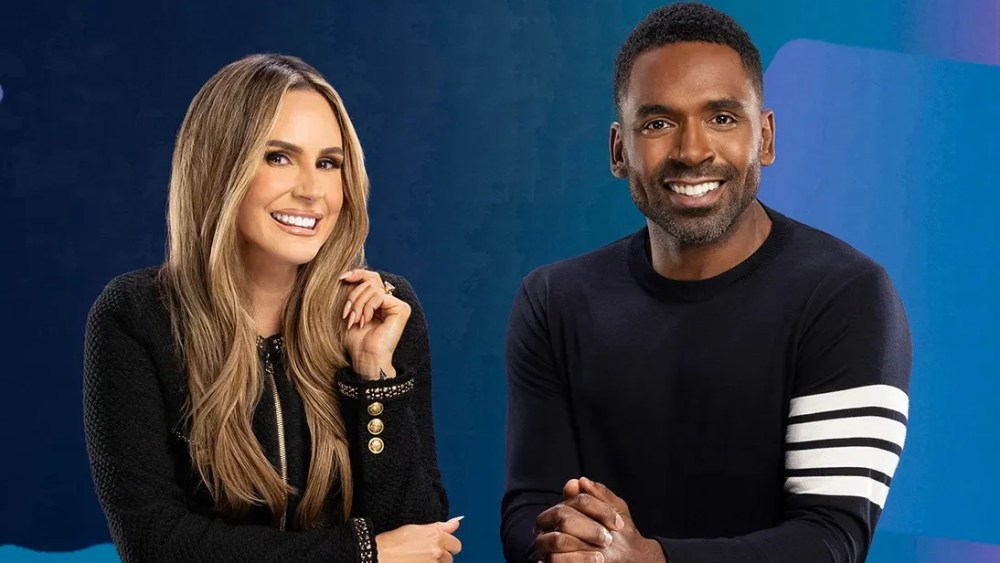Basically, the most important part of the music business – songwriter – is essentially the most overlooked, usually for a short time. With streaming dominance over the past decade and the looming risk of artwork for AI, songwriters have even lightened up in the background, as royalties are still shocking and the possibility of being within the credit line for licensing effects is reduced, as music favors a market.
“Killer,” Netflix's new scriptless reality sequence specializes in the dozen composers behind Ariana Grande, Justin Bieber and BTS' Chart-Toppers, and with chooseThe long-standing musical occasion and canopy packaging deal are the same title–it's almost impossible to solve the entire six-episode arc of the elephant in the studio. Alternative, it's a shiny fantasy that specializes in the dazzling aspects of popular machines: songwriting camps, or luxurious confirmed killer gatherings, which fly to unique areas to give you the subsequent large smash. These camps are often funded by report tags or publishers and can be heartfelt or become a basic jam session in selected artists. In real life, most songwriting camps are much less affluent. The writers don't get a commission upfront, nor will they get the commission of the daily diem – at the serious level of competition nearby and working on accidentality, hoping to secure a place on tomorrow's greatest track.
Currently, streaming on Netflix while we speak, revealing at the same time but deaf, leveraging the metaphor of splashing reality TV to convey the worker-like, often low-paying world {Professional} songwriting. Not surprisingly, because many of its government producers are working on “promoting sunsets”, which brings the same fast-cut type into a whole new territory. (Harvey Mason Jr., CEO of the Recording Academy.
For these writers who share billions of streams, and there are more than a dozen Grammys in between, these reality is hardly talked about on “Hitmakers,” an intent and fun but superficial look. We saw them pop up bottles, drink gourmet restaurants, and drive to Capo and the Bahamas. Only one songwriter, Trey Campbell, managed to direct the present to reality again, explaining that regardless of the credibility of John Legend and the song given, he had to make ends meet by driving for Uber.
The music business is about concepts, and the “killer” largely describes it as a constant, money-making social gathering. In some way, it's for profit. The problem with capturing the magic of songwriting courses is that, like many art professions, it is largely meticulous and mundane. The idea involved in MTV's 2007 sequence “I'm from the Rolling Stones” was an early reality that overestimated the extent to which writing was a social movement that brought six summer interns against each other to the opposite of each other in order to have a contributor in the journal.
Where “Hitmakers” succeeds is transforming the stress cooker of songwriting into a fascinating wonder. In these six episodes, songwriters – Tommy Brown, Severn Street, Nova Ward, Jayhart, Jenner Andrews, Stephen Kirk, Stephen Kirk, Haha, Vlass, Ferras, Ben Johnson, Whitney Phillips and Campbell – are divided into three smaller teams, forming three smaller teams responsible for creating the songs “Foreend for Legend, Shaboozey and Blackpink and Blackpink's Lisa”. Every singer’s cameo offers the concept of what they are looking for, while the group gives you a good deadline for real tracks.
In these millions of green studios, “Hitmakers” shine. Each author has his or her personal strengths, just like watching the athlete reach the pressure of the whole style at the peak of entertainment, hatching the concept core into a full blood song. “Hitmakers” intend to point out the human aspect of songwriting, and writers obviously like their craft. As the track’s puzzle items gather collectively, their pleasure and glimpses of glory emanate the screen, each group celebrates each other’s work as the end of each episode.
“Hitmakers” skate because they're taking part in too much drama, although there's definitely one thing, and there's something as emotional as songwriting. Through these episodes, Andrews and Phillips cleared the air of tensions that emerged throughout the meeting. Brown vs. Campbell Pep-Talks Campbell, who made his feelings the best while collaborating. Harv, Brown and Streeter faced Kirk with how Kirk spoke to his spouse Andrews during a dinner at their Nashville residence.
In one of many of the most inspiring moments at the moment, Johnson openly challenged Jelt after mentioning the concept of their meeting, and Johnson is not where he is. Art property is often a grey space during group songwriting – many lawsuits have radiated the scope of the topic from the studio – but we rarely see resolutions that are more than the level of competition they get. (Ultimately, Jhart generously released Johnson from his private share, followed by incredible reality that doesn't actually happen often.)
This is practical because it will become “Hitmakers”, a gift that swept across the business floor. At the end of the final episode, the writer collects it in a fall room at Blvd, Brown’s Los Angeles Steakhouse. He ordered two caviars, two branzinos, three beef balls and three steaks. They shared the story of success, a period: the legendary likes “Cherry”, which is the tune in the main plot; Lainey Wilson may write “full birthday” for Shaboozey; Lisa “allegally, allegedly” will report “Eleventh.”
They all used to toast to raise their glasses: “Never fall,” Brown said. “The whole cash.” It's a powerful mantra for a rigid command (the songwriter).
Currently, all the episodes of “Hitmakers” are streaming on Netflix.

